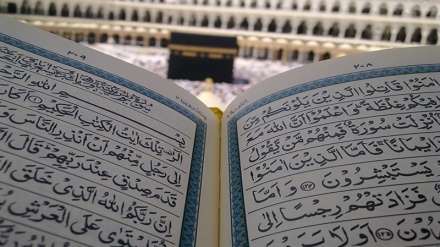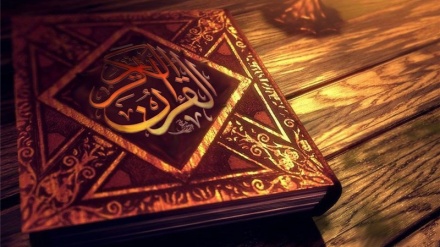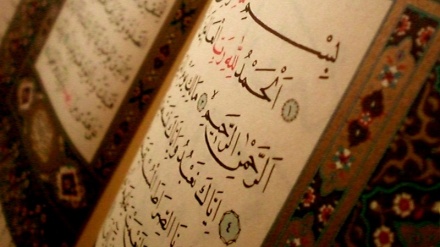Path towards Enlightenment (1022)
Salaam, and welcome to our latest episode of “Path towards Enlightenment”, which is an endeavour to make you and us familiar with an easy and fluent explanation of God’s Final Scripture to all mankind, the holy Qur’an that was revealed to the Last and Greatest of all Messengers, Prophet Mohammad (blessings of God upon him and his progeny).
As you know we have taken up the explanation of “Surah Mulk, the number 67 in the serial order of compilation of the holy Qur’an. Revealed in Mecca, it has 30 Ayahs and opens with the sentence “Blessed is He in Whose hands is all sovereignty”, thus deriving its name from “Divine Sovereignty” or “Mulk” in Arabic. It is also called “Blessed” from the opening word “Tabarak”. This Surah challenges the disbelievers with declarations of God’s Infinite Power over them and over everything else in the world, in afterlife, and in the universe by focusing on the marvelous and orderly system of creation. It also describes the regret the disbelievers will express on the Day of Resurrection. It is highly recommended to recite Surah Mulk every night.
We start from where we left you last week, and here is Ayah 20:
“Who is it that is your host, who may help you, besides the All-Beneficent? The faithless only dwell in delusion.”
If you remember, in the previous edition of Path towards Enlightenment we said the mercy of the All-Wise Creator is fully evident in all and everything in the universe, The growth of plants and the bearing of fruits every years as well as the flying of birds for long distances without falling or collision are all signs of Allah’s Power and Greatness, including the orderly functioning of our own bodies.
The Ayah which we recited to you now refers to the fact that besides the Almighty Creator there is none who is the provider and helper of all creatures, including mankind. It means it is nothing but a delusion by the disbelievers to think they can do whatever they like or save themselves from afflictions, which if averted are only by the Grace of God without which nothing can survive. In other words, no amount of wealth or military and political power of the rulers can save them from affliction in the world without the Will of the All-Merciful God, Whose doors of forgiveness are always open and Who has decreed punishment only for those who ignored realities and die in the state of disbelief or for those who are unrepentant of their sins.
This Ayah teaches us that:
- Those who are proud of their material and political power are living in a state of delusion and cannot avert the fate reserved for them because of their disbelief in God and indulgence in sins.
- No power can stand against the Will of the Almighty Creator.
Now listen to Ayah 21 of Surah Mulk:
“Who is it that may provide for you if He withholds His provision? Rather they persist in defiance and aversion.”
This Ayah further explains the inability of human beings in securing sustenance and livelihood. It means to say that it is only God’s mercy in sending down rains to make vegetation flourish and water accumulate in rivers, lakes, and ponds for animals and mankind that guarantees life and survival, but the disbelievers persist in their denial of Divine Grace and Power.
This Ayah teaches us the following points:
- It is the Almighty Creator Who guarantees the means of sustenance and livelihood, and thus any disobedience will eventually lead to our destruction.
- It is only the acknowledgement of the all-encompassing mercy and infinite power of God that make people obedient to Divine commandments.
Now we listen to Ayah 22 of the same Surah:
“Is he who walks prone on his face better guided or he who walks upright on a straight path?”
This Ayah presents an excellent comparison between the faithful and the faithless. One walks upright on a straight path while the other one walks as if he was crawling. A glance at history reveals that the faithful stay firmly in hardships and never abandon their belief, while the faithless who consider death as the end of everything indulge in sins and oppression of others on the assumption that there is no accountability for their crimes against humanity.
From this Ayah we learn that:
- Denial of truth leads to selfishness, egoism, sins, and oppression of others.
- For believers the path of religion is straight and clear without any pitfalls, which means they walk upright in contrast to the stumbling of disbelievers.
In conclusion of this Friday’s Path towards Enlightenment, here are Ayahs 23 and 24 of Surah Mulk:
“Say, ‘It is He Who created you and made for you hearing, eyesight and hearts; little do you thank.’
“Say, ‘It is He Who created you on the earth and toward Him you will be mustered.’”
These Ayahs are a warning to the disbelievers and the purpose is to open their eyes to the realities of creation and the Divine favours evident in their own selves, such as the benefits of hearing, seeing, smelling, tasting, walking, talking, breathing, and the regular beating of hearts that ensure life. These bounties inspire the faithful to express their gratitude to God Almighty, but the disbelievers and deniers are always thankless.
We should realize that we have been created from the soil of the earth and death marks our return to the soil, but this is not the end of everything, since the Almighty Creator has the power to resurrect and gather all of us in His Presence for the final judgement.
These Ayahs teach us that:
- Allah has granted the necessary means of cognition of facts and realities to mankind through rational argumentation.
- Gratitude toward each bounty differs, and the least form of thanksgiving is verbal expression of gratitude.
- There is no question of doubting Allah’s Power to revive the dead, since it is He Who in the first place created us from nothing and provided us with all amenities.
RM/AS/SS


